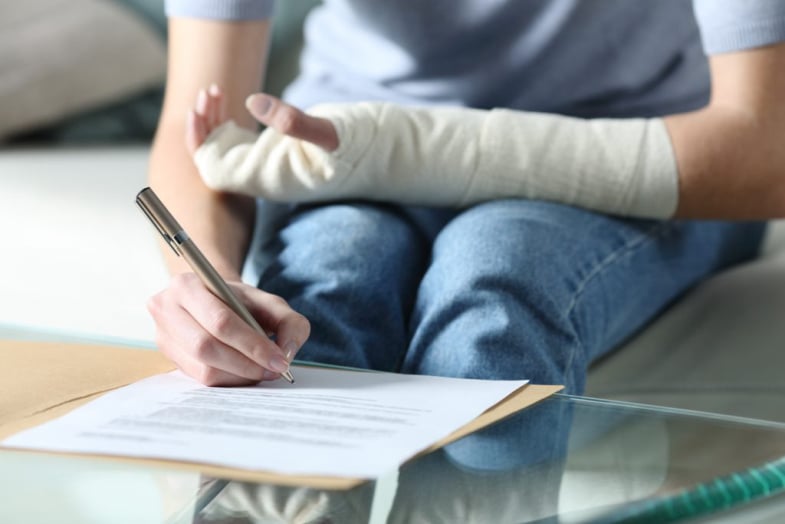

When medical care leads to preventable harm—such as misdiagnosis, surgical mistakes, or birth injuries—you have the legal right to seek compensation. Here’s a clear, step-by-step guide tailored for Brisbane residents:
1. Understand What Qualifies as Medical Negligence
To succeed, your claim must establish four key elements:
• Duty of care – a professional relationship existed (e.g., doctor-patient).
• Breach of duty – the care fell below accepted standards (backed by expert testimony).
• Causation – the breach directly caused your injury.
• Damages – measurable harm like pain, medical costs, lost income.
Common types in Queensland include:
• Misdiagnosis or treatment delays
• Surgical and anesthesia errors
• Childbirth injuries, defective medical devices, and more.
2. Act Quickly – Time Limits Apply
Queensland imposes strict deadlines:
• Place of action: You usually have 3 years from when the injury occurred or was discovered to file your claim.
• Notice requirement: Before proceeding in court, you may need to issue a Notice of Claim or NOC‑1—particularly if the plaintiff is a child. For children, notice must be given within 6 years of the parent becoming aware, or 18 months after consulting a lawyer.
• Pre-court steps: In many cases, you’re required to begin pre-court processes within 9 months of the incident.
Failing to meet these deadlines can bar your claim, or significantly limit your ability to claim certain costs.
3. Gather All Relevant Evidence
Build a strong factual basis:
• Keep detailed medical records: diagnostic reports, prescriptions, referrals, expert statements.
• Collect proof of losses: medical bills, receipts for treatment, rehab, travel, equipment, and prosthetics .
• Document income loss: payslips, tax returns, employer letters, and evidence of reduced earning capacity.
• Log in-home care: help from family or friends, and ongoing assistance.
• Capture the incident environment: photos, videos, witness contacts, or sketches of where the event occurred.
Quoting a Brisbane thread on legal practice:
“To assess your case, your lawyer will arrange for a medical expert to review... you won’t know if you have a case until a medical expert reviews your case.”
Expert medical opinions are therefore essential to establish negligence and causation.
4. Seek Expert Legal & Medical Advice
You've already done the groundwork by keeping evidence. Now:
Get a solicitor specialising in medical negligence—most offer no-win, no-fee and a free case review.
They’ll help you:
• Review your documents and medical expert reports.
• Determine whether your case has merit.
• Issue the required Notice of Claim to the medical provider.
• They’ll also arrange expert reports to confirm breach and causation—this is often a legal requirement.
5. Serve Notice & Enter Pre-court Procedures
With your case in hand, your lawyer will:
• Serve notice on the medical provider or hospital, initiating formal proceedings .
• Organise a compulsory conference or mediation, which is often required before approaching the court .
• Approximately 95–98% of cases settle at this stage, avoiding court entirely .
6. Filing a Court Claim (If Necessary)
If mediation fails:
• Your lawyer will file in the District or Supreme Court, depending on case value.
• The claim includes statements of facts, expert reports, and evidence of your losses.
• The court process may involve further statements, hearings, and possible trial—though most cases settle before a full hearing .
7. Understand What You Can Claim
Your compensation may include:
• General damages for pain, suffering, and loss of life quality.
• Economic losses: past/future income and superannuation.
• Treatment costs: medical, rehab, meds, travel, home modifications.
• Care and assistance, whether paid or unpaid.
Keep in mind statutory caps for non-economic losses, which vary depending on injury severity.
8. Final Settlement or Court Judgment
Once your case is resolved, outcomes may include:
• Out-of-court settlement: Lump-sum payment, often with confidentiality clauses.
• Court judgment: Awarded by a judge, followed by payment or enforcement.
Your lawyer ensures net compensation—after legal fees, third-party costs, and applicable taxes—is fair and transparent.
• Act fast—medical negligence claims in Queensland have tight deadlines.
• Document everything, as early evidence is critical.
• Seek specialised legal help, particularly firms with experience in serious injuries (e.g., brain or spinal).
• Understand the cost model: most firms work on a no-win, no-fee basis, but confirm who covers expert fees.
Filing a medical negligence claim in Brisbane might seem daunting, but by following this process—act quickly, gather robust evidence, get expert advice, and prepare for both mediation and court—you stand the best chance of securing the compensation you deserve. Always consult a trusted medical negligence lawyer to guide you on your individual case.
1300 529 529
Carter Capner Law
Level 18, 150 Charlotte Street, Brisbane City QLD 4000, Australia